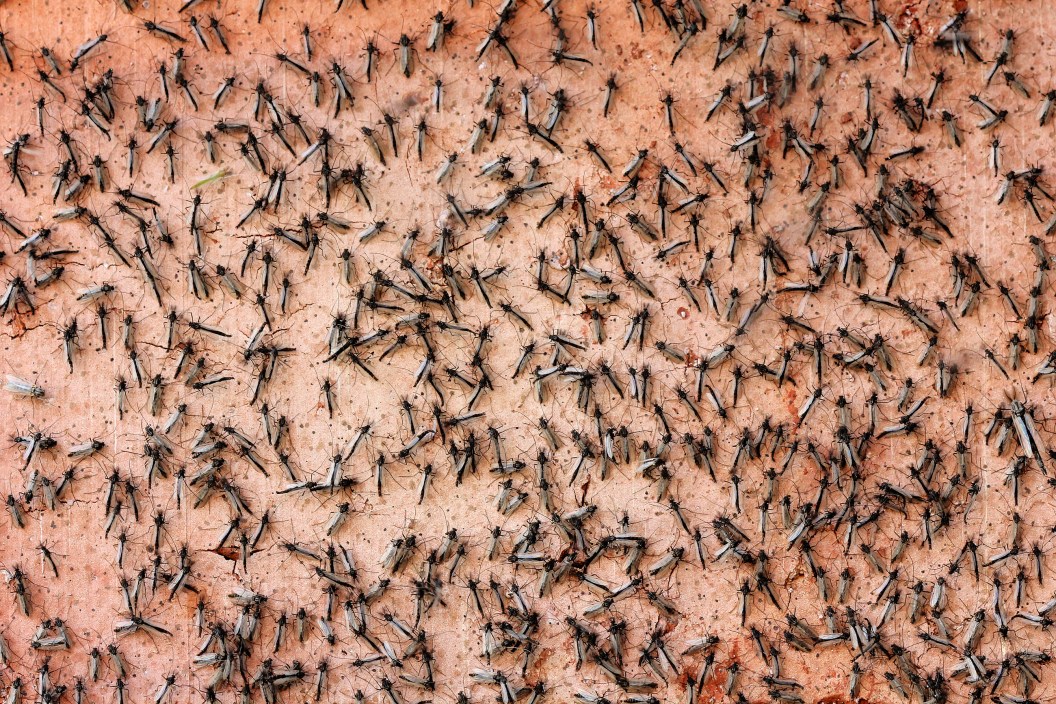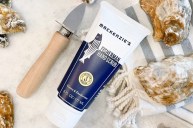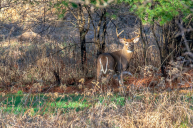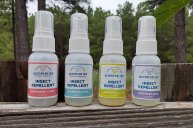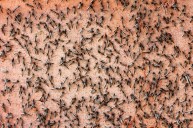There's nothing more frustrating than stepping foot outside and immediately getting eaten alive by hoards of mosquitoes—only to hear the rest of your buddies are somehow being spared. Why the irritating bugs may prefer some of us more than others has long been a mystery—but one new study says mosquitos are actually attracted to and deterred by the scent of certain soaps. If seem to get bit even when you've been without a fresh shower for days, another newly-released study reports mosquitos are attracted to certain chemicals on your skin, which may be connected to your diet.
In a study published in iScience, researchers in Virginia looked at the unique scent profile of four people, both unwashed and then washed with four different soaps (Dial, Dove, Native, and Simple Truth). According to the study authors, more than 60% of our smell after washing comes from soap, rather than our natural body odors—and there's a lot of interesting chemical interaction that happens between the two.
The researchers found that three of the four soaps made mosquitos more active. Only one, which was coconut scented, made the mosquitos less interested in biting—which kind of makes sense, considering there's other evidence that "elevating certain fatty acids, such as those found in coconut oil derivatives, could serve as a repellent for mosquitoes and other insects," study author Clément Vinauger, an assistant professor of biochemistry at Virginia Tech, said.
The takeaway? "Just by changing soap scents, someone who already attracts mosquitoes at a higher-than-average rate could further amplify or decrease that attraction," Dr. Vinauger said.
For those of us who get eaten alive after days in the backcountry, a different set of new research, published in the journal Current Biology, has some ideas: Researchers focused on malaria built a large, open-air arena in Zambia and piped in the scent of six people sleeping in nearby tents. They then tested mosquito's attraction to targets heated to human skin temperature. (Pretty cool, right?)
Essentially, they created the "world's largest perfumery for mosquitoes," where the bugs could choose whose scent they like best, explained lead study author Conor McMeniman, an assistant professor of molecular microbiology and immunology at the Johns Hopkins Malaria Research Institute.
The mosquitoes seemed to be most attracted to a certain 'scent signature' dominated by a class of molecules called airborne carboxylic acids—compounds produced by microbial metabolism on human skin, McMeniman explained.
Interestingly, there was one person that mosquitoes consistently found unappealing, and that person had a body scent that included an unusually low amount of carboxylic acids, and high eucalyptols.
Most likely, the unattractive scent signature was the result of the person's vegetarian diet, McMeniman said.
The Virginia research team plans to test out other kinds of soap next, as well as scents from other sources like deodorants and laundry detergents, to see how they interact with natural body odor.
Meanwhile, the malaria research, while vague to us concerning the chemicals on our skin, shows promise to help create a new form of mosquito repellents that could end up saving lives.
For now, when re-upping on your soap, reach for the coconut-scented option for both the vacation vibes and maybe even a bit of help in preventing itchy bites. (And of course, don't forget to load up on a good repellent to protect you from ticks and mosquitoes on your outdoor adventures this summer.)
READ MORE: How to Beat the Elements (and Bugs) Camping This Summer
